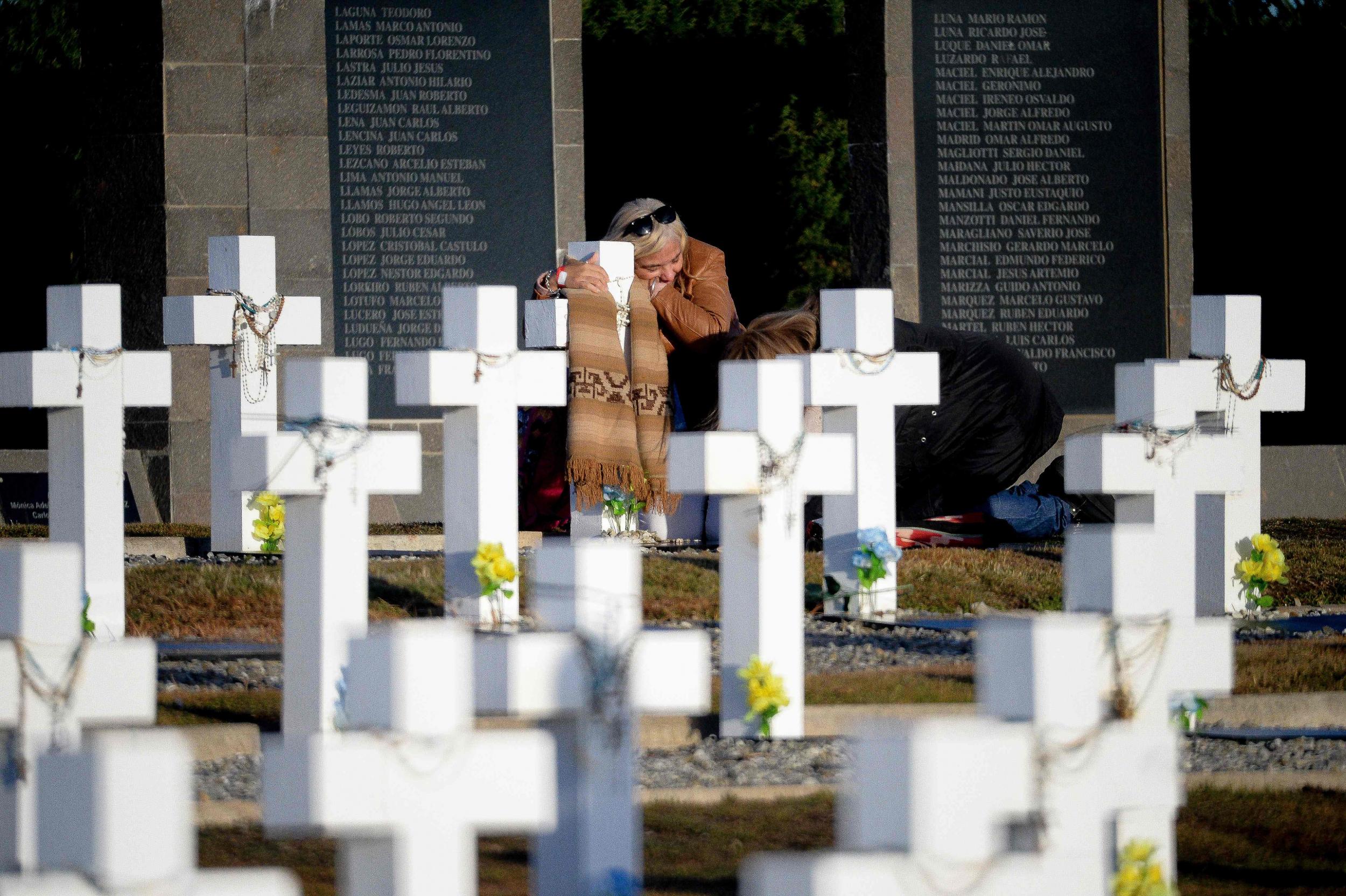Families of 90 soldiers killed in Falklands War visit graves for first time after remains identified decades later
Remains of Argentine troops had lain in graves marked 'no name'
The families of 90 Argentine soldiers killed in the Falklands War have visited their graves for the first time after the fallen troops’ remains were identified decades after the conflict.
About 250 relatives travelled to a windswept military cemetery on the South Atlantic islands as part of an unprecedented diplomatic agreement between the UK and Argentina.
The International Committee of the Red Cross (ICRC) identified the troops after taking DNA samples from the families of 107 soldiers who died in the 1982 war.
Forensic scientists analysed remains from 122 graves labelled “no name” in Darwin Cemetery on East Falkland island.
“I found my son, I spoke with him, I asked him questions, I shared my feelings with him, my pain,” said Dalal Massad after kneeling at her son Marcelo’s grave for the first time during the emotional trip on Monday.
"I feel at peace because I know where he is."
Marcelo was one of 649 Argentines killed during the 74-day war, nearly half of those perishing when a navy ship was sunk by a British submarine.
The conflict also cost the lives of 255 British troops, who were fighting to regain the islands after Argentina’s invasion.
Argentina still rejects the UK’s claim to the islands, which it calls the Malvinas.
But the two nations set aside the dispute in 2016 to sign an agreement to identify the soldiers and divide the costs.

Scientists started analysing the DNA last June after the ICRC began interviewing the families of fallen soldiers in 2012.
“Speaking for the state, I think we have taken an enormous step toward closing a debt we had to the families and to the heroes of the Malvinas,” said Claudio Avruj, Argentina’s human rights secretary, at Monday’s ceremony.
He said the identification of the soldiers was “the culmination of a long-running demand” and the families’ visit “was a celebration of life in its entirety”.
Parents, siblings and other relatives of the buried soldiers sobbed, prayed, and comforted each other at the cemetery, where in total 237 Argentine soldiers are buried.
The families listened as Scots Guards members played bagpipes against a backdrop of vast, grassy plains, and some relatives collected stones to bring back to the mainland.
Brigadier Baz Bennett, Commander of the British Forces South Atlantic Islands, said: “For me, as a military man, I think it is very, very important that the families have been able to come here today to now actually see a name on a grave and be able to pay their respects.”
Relatives of 32 fallen soldiers who have not been identified also attended the ceremony.
Nora Dimotta, whose son Raul never returned from the war, cried in front of one of the unmarked graves.
“This is not the final step, this is the beginning,” said Norma Gomez, whose brother Eduardo was identified. “This process will continue until all the missing soldiers are identified.”
Mr Avruj added: “We must continue working to gather as many samples as possible in order to gain greater certainty about those that remain unidentified.”
Join our commenting forum
Join thought-provoking conversations, follow other Independent readers and see their replies
Comments
Bookmark popover
Removed from bookmarks